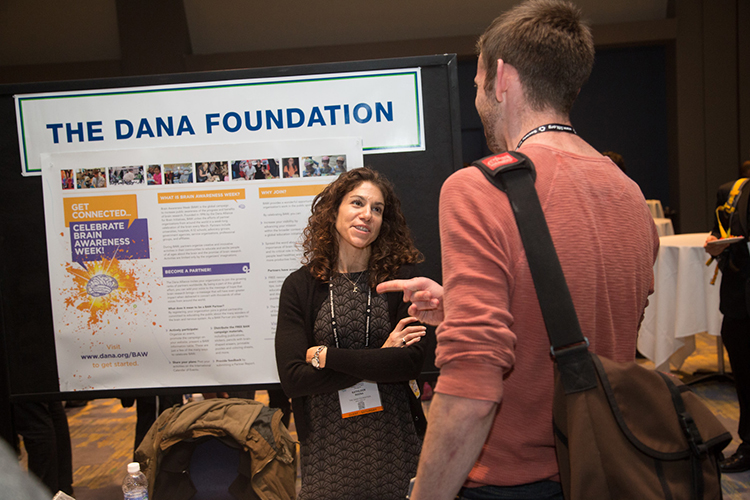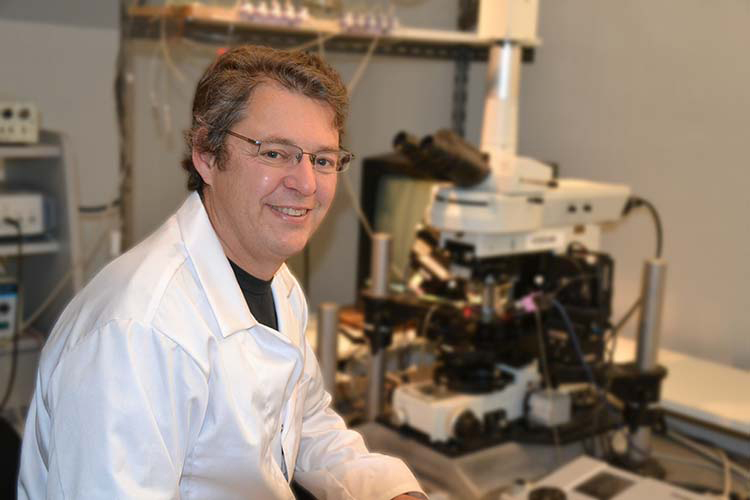
Fall Council Roundup
The SfN Council met during Neuroscience 2015 for its annual fall meeting, where the focus was to review key accomplishments and discuss strategic priorities for the future. In addition to providing scientific leadership to SfN, the Council also serves as the Board of Directors for the Society, with fiduciary and oversight responsibilities for all of SfN’s activities. During this meeting the Society’s leadership also discussed and reflected on the success of Neuroscience 2015, with more than 29,000 attendees and a robust scientific program, and met with committees to explore potential opportunities to enhance value for the membership and to provide service for the broader neuroscience community. The following overview highlights key discussions.
Financial Update and Strategic Investments
Council discussed an update provided by the Finance Committee on the Society’s finances and ability to continue to operate and provide quality programming from a position of fiscal strength and stability. The Society continues to operate in alignment with the financial plan adopted by Council in the summer of 2014. Council reiterated its commitment to invest in the programs of the Society, ensuring that SfN continues to create and effectively communicate the unique value of membership. While financial pressures on membership and the field at large continue, through careful planning, stewardship, and investments, the Society is in a position to consider how best to strategically deploy resources in support of the field in the future. Council appointed a subcommittee of the Finance Committee to make recommendations on a reserve strategy to Council by mid-2016.
Meeting With NIH Director Francis Collins
Council had the opportunity to have a conversation about pressures on and opportunities for the field of neuroscience with the NIH Director Francis Collins, who gave a well-attended Special Presentation during Neuroscience 2015. During his presentation, Collins discussed how NIH works with the neuroscience community to catalyze the development of technologies to provide dynamic pictures of the brain, both in disease and in health, with particular emphasis on the BRAIN Initiative.
Principles to Support Ethical Conduct in Neuroscience
Over the past several years, Council adopted a set of practices to promote responsible conduct within the field of neuroscience, established an Ethics Committee to implement them, and committed to review and discuss the Society’s progress along the way. During its fall meeting, Council affirmed its commitment to promoting strong and effective ethical practices and to maintaining the accuracy of the scientific literature published by the Society. It also refined a set of principles that will guide future SfN ethics efforts. You may read more about these principles and how they are applied at SfN.org/member-center/professional-conduct.
Expanding Efforts in Neuroscience Training
At its summer meeting this past August, Council voted to approve a recommendation to expand the historic charge and composition of the Committee on Neuroscience Departments and Programs (CNDP), expanding and recharging the committee to create a new Neuroscience Training Committee (NTC). It will provide support for training during and beyond the “trainee” period, including a focus on life-long scientific training activities, novel programming for neuroscientists at various career stages, and emerging workforce policy issues. At the same time, the committee will also continue to make it a high priority to provide valuable programming specifically focused on serving SfN Institutional Program members.
The newly expanded committee, chaired by Elisabeth Van Bockstaele, PhD, met for the first time during Neuroscience 2015 and had active discussions around a number of issues surrounding both ongoing programming for Neuroscience Departments and Programs as well as the expanded responsibilities for the committee in strengthening scientific rigor and workforce planning.



















